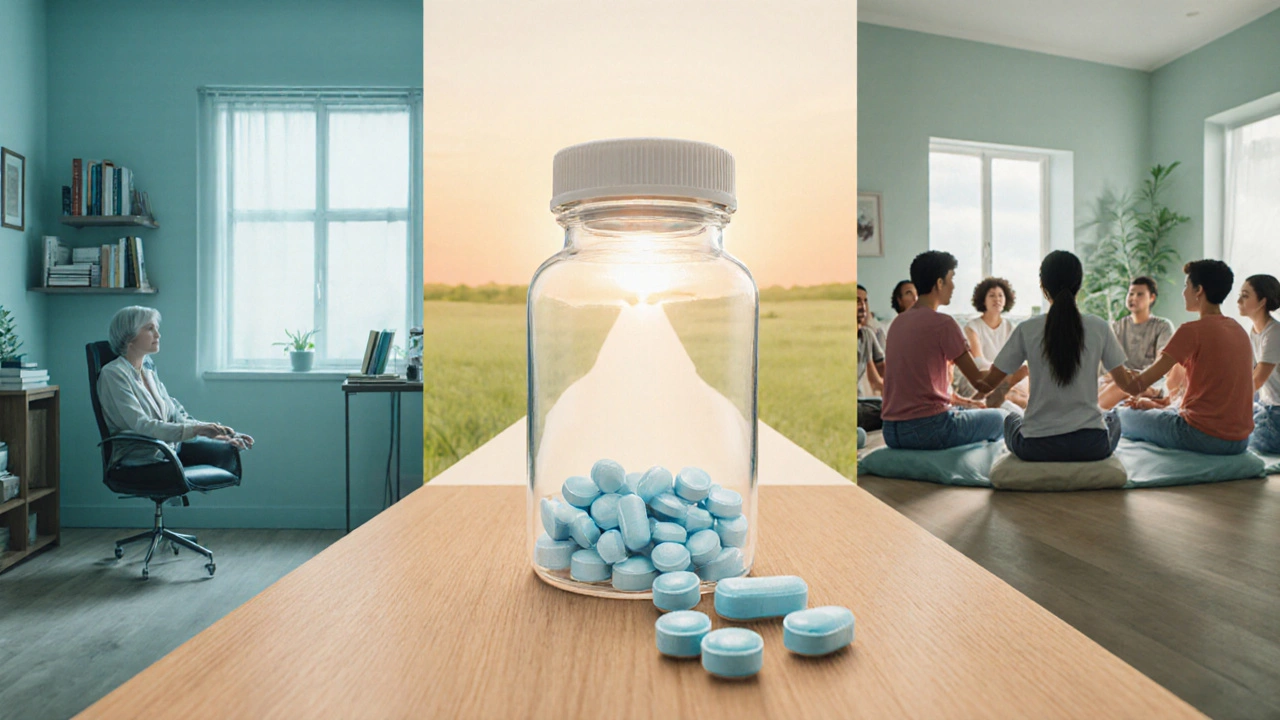Medication: A Practical Guide to Uses, Dosage, and Health Impact
When we talk about Medication, a substance used to treat, cure, or prevent disease. Also known as drug, it directly influences health, the overall physical and mental well‑being of a person and especially mental health, the state of emotional and psychological well‑being. Getting the right dosage, the prescribed amount of a medication taken at one time is key, while watching for side effects, unintended reactions that can occur when taking a medication keeps you safe.
Understanding medication matters because it bridges the gap between staying healthy and needing medical help. For instance, people who volunteer often report lower stress levels, which can reduce dependence on certain medications. Knowing how a pill works helps you decide if lifestyle changes might replace or complement it. It’s not just about treatment; it’s about prevention and empowerment.
Dosage isn’t a guess—it’s a science. Doctors calculate it based on age, weight, kidney function, and the condition being treated. Even a tiny deviation can change effectiveness or trigger unwanted reactions. Reading the label, using proper measuring tools, and timing doses as instructed are simple steps that make a big difference.
Side effects can range from mild (like a dry mouth) to serious (such as an allergic reaction). The first rule is to know what to expect before you start. Keep a notebook, note any new symptoms, and tell your healthcare provider right away. Early detection prevents complications and lets you adjust the plan safely.
Mental health medication often faces stigma, yet it’s a cornerstone for many living with anxiety, depression, or bipolar disorder. These medicines work by balancing brain chemicals, and when taken correctly, they can restore daily functioning. Pairing them with therapy, exercise, and good sleep amplifies benefits and reduces the need for higher doses.
For chronic conditions like diabetes or hypertension, medication becomes part of a longer‑term strategy. It’s not a one‑off fix; it’s a routine that supports a healthier lifestyle. Monitoring blood pressure, blood sugar, or cholesterol alongside your meds helps you see real progress and catch issues early.
Safe storage matters too. Keep medications in a cool, dry place, out of reach of children, and never share them. When a prescription ends, follow local guidelines for disposal—many pharmacies offer take‑back programs to keep drugs from contaminating water supplies.
Finally, a good relationship with your healthcare provider is priceless. Ask questions about why a medication is prescribed, how long you’ll need it, and what alternatives exist. Clear communication ensures you’re on the right track and reduces the chance of unnecessary prescriptions.
Below, you’ll find articles that dive deeper into health benefits of volunteering, mental health insights, dosage tips, and more. Use them to sharpen your understanding of how medication fits into a broader picture of well‑being.
Three Main Types of Help for Mental Disorders
Explore the three main types of help for mental disorders-psychotherapy, medication, and peer support-learn how each works, costs, effectiveness, and how to choose the right mix.
Read More